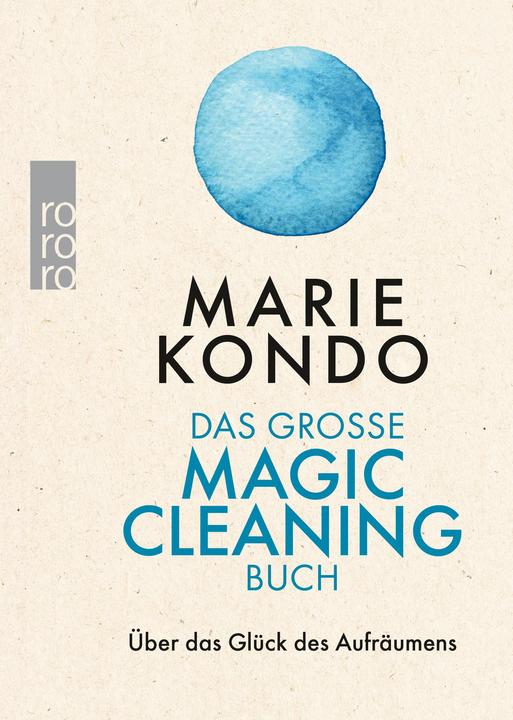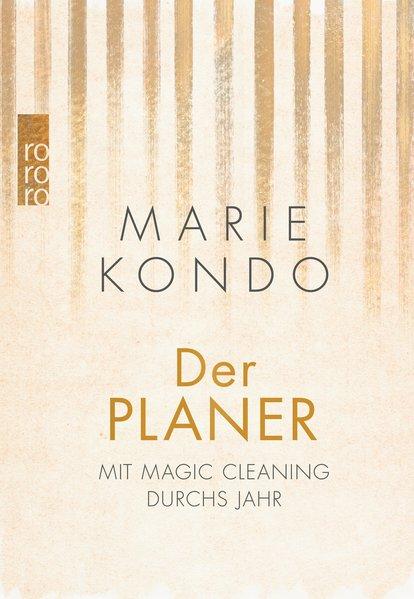

Escaping chaos: a good clear out inspires the senses
Having a clear out is the new fasting, and tidying up is a detox for the mind. What’s the reasoning behind this trend for more structure and fewer possessions? Probably the search for salvation.
Want to know my secret superpower? I can turn a hotel room into a jumble of rubbish within a few minutes. Breadcrumbs in the bed, heaps of clothes on the floor, make-up paraphernalia in the bathroom, bundles of knotted cables cluttering shelves, leftover food on the table, maybe even on the walls. Generally speaking, that’s what I left behind – at least, my former self did. That’s because I used to be the absolute queen of chaos, a gnat’s whisker away from being a hoarder.
People are quick to adopt this description of themselves. But with me, it’s actually true. Aged 20 and after a rowdy party, I gave notice on my very first flat that I’d been in since I was 19. 30 revellers packed into 30 square metres left behind too much rubbish to clean up. So, I moved into another flatshare to continue messing things up there. It got so bad that you couldn’t open my bedroom door properly because there was so much stuff stacked up on the other side. But before my flatmates got chance to chuck me out, I moved in with my first boyfriend. And he had a really zealous cleaner. Fortunately for him – and me.
Having a clear out: when you’re saddled down, less is more
These days, your gaze won’t fall on anything in my flat that would offend your eyes. Whenever I’m looking for something, I find it – exceptions like glasses and keys prove the rule. Admittedly, stereotypical housewife tasks still aren’t my thing. But having a certain amount of structure is good for the mind. Countless studies will confirm I’m not alone in doing this kind of «mental health care». Researchers at the «Neuroscience Institute of the University of Princeton» used MRIs to uncover that chaos dulls our concentration and distracts us from important decisions, as information can’t be processed properly.
This was confirmed by a study at «Cornell University» in New York. Test subjects were shown various well-known film scenes. The more complex the background, the longer it took them to recognise the protagonists’ facial expressions. You lose an overview quicker when you’re surrounded by chaos. What’s more, a study from the «Center on Everyday Lives of Families» at the «University of California» identified a connection between a lot of clutter and health problems. Cortisol levels rise, which can lead to stress, anxiety, depression, sleep problems and weight gain.
Throw it out – from «magic cleaning» to «death cleaning»
So, it’s a good idea to have regular clear outs – of the no holding back kind – when things start to feel out of control and when your idea of tidying up is just a case of «out of sight, out of mind». All that involves is banishing stuff lying haphazardly around into boxes and onto shelves so it’s out of your line of sight. But there are horrors waiting for you beneath the surface. We keep putting off the real challenge of bidding a final farewell to our stuff. With the popularity of Marie Kondo, we all became more familiar with this considerable task. The Japanese advisor actually published her book «Magic Cleaning» many years ago. At the start of 2019, the accompanying series was released on «Netflix». As part of this, Marie visited despairing families who wanted to declutter their homes.
However, some were put off by her somewhat esoteric approach. Marie insisted that they personally thank each of the individual objects they were parting with. But nonetheless, it still managed to create an appetite for big clean-up operations. People carted old clothes and unused everyday items to rubbish dumps or donation boxes by the bag load. Marie’s successor, Swedish-born Margareta Magnusson, took things a step further with her trend called «death cleaning». It refers to the process of radically decluttering your flat, such as you’d do before you die. Because you don’t want those you leave behind to have to do this. In short, «tidy up as if you were going to die tomorrow».

Frau Magnussons Kunst, die letzten Dinge des Lebens zu ordnen
German, Margareta Magnusson, 2018
Tidiness helps bring about change
Why did I sever ties with chaos (more or less successfully)? Because I like being happy. When you clear out your stuff, you also declutter your mind. In other words, I don’t just free up space in drawers and wardrobes. When it comes down to it, it’s always about the same main issues: making decisions, opening the door to change, setting priorities, and more than anything else, letting go. This process can certainly hurt. If you throw something away that used to mean a lot to you, there’s often a feeling of sadness that comes with it. Then again, consciously separating yourself from nostalgia-ridden items because they’re just not part of your current life and belong in the past can also be incredibly freeing. Anyone who’s cleared out their ex’s memory box after a break-up or even gone the whole hog and chucked everything out will be able to identify with this. It’s painful and makes you feel good at the same time.
Nevertheless, having structure doesn’t necessarily equate to only living with the bare essentials. Minimalism may have been a trend ever since Marie Kondo appeared on our screens, but fads come and go. It’s less sustainable to throw away up to 70% of your possessions (as she suggests) and then buy them again as the need arises. Besides, I could never feel at home in a sparse environment – it lacks cosiness and warmth. Keeping hold of cherished mementoes doesn’t automatically mean you’re living in chaos. Quite the opposite. It’s just that they’ll have a better impact on your wellbeing when presented in an intentional way rather than thoughtlessly stacked up or left to gather dust in a corner. Having a tidy home isn’t that difficult at all – assuming you keep a handle on it regularly.
So, what do you think? Got a taste for tidying but still feel a bit apprehensive? The worst that can happen is you manage to find your favourite jeans straight away one morning.
Author: Janina Lebiszczak
/ Header image: Shutterstock
Health, sexuality, sports and sustainability. Delve into all aspects of this life less ordinary with the right amount of curiosity, humour and a pinch of salt.
Interesting facts about products, behind-the-scenes looks at manufacturers and deep-dives on interesting people.
Show allThese articles might also interest you

Background information
Ghosting in friendships: suddenly, she was gone
by Anika Schulz

Background information
First world problems: when children don’t know what to wish for
by Michael Restin

Background information
5 plus 8 = good night? With this simple formula, babies are supposed to fall asleep quickly
by Katja Fischer

